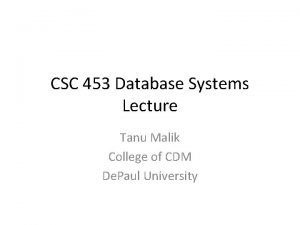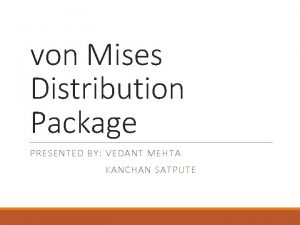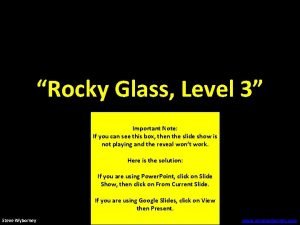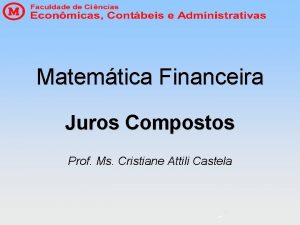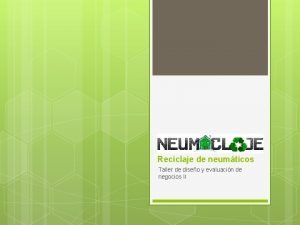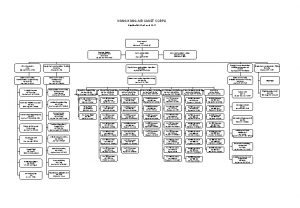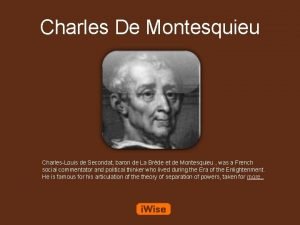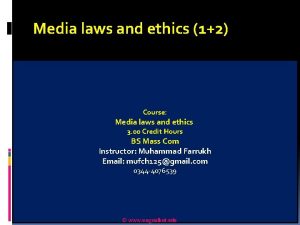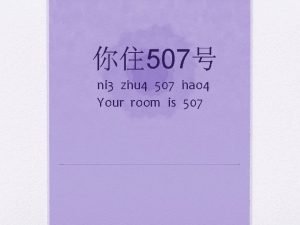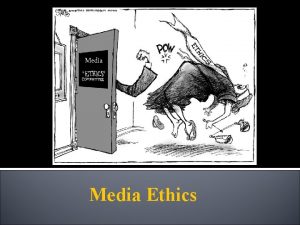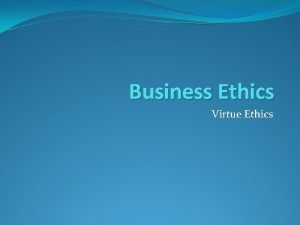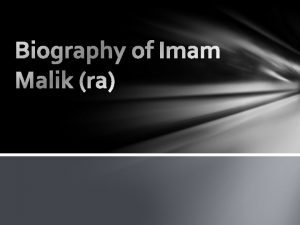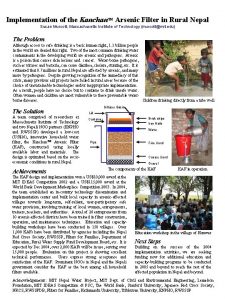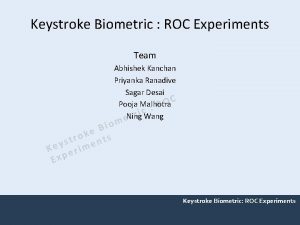CC 507 MEDIA LAWS ETHICS Kanchan K Malik










- Slides: 10

CC 507: MEDIA LAWS & ETHICS Kanchan K. Malik Uo. H

For Self-Study: The Copyright Act, 1957 ¡ ¡ The Copyright Act, 1957 – According to this Act, ‘copyright’ means the exclusive right to commercially exploit the original literary, dramatic, artistic, musical work, sound recordings or cinematographic films as per the wishes of the owner of copyright subject to the restrictions imposed in the Act. Although this Act is applicable to all the branches of media, in some areas it is specific to a particular genre.

Copyright Rearticulated ¡ Copyright is usually thought of as a bundle of rights that are available to the owner, and these are: l l l Reproduction rights: the right to reproduce copies of the work (for example making copies of a book from a manuscript) Adaptation rights: the right to produce derivative works based on the copyrighted work (for example creating a film based on a book) Distribution rights: the right to distribute copies of the work (for example circulating the book in bookshops) Performance rights: the right to perform the copyrighted work publicly, (for example having a reading of the book or a dramatic performance of a play) Display rights: the right to display the copyrighted work publicly (for example showing a film or work of art)

Contextualising Copyleft ¡ ¡ ¡ The Copyleft movement recognizes the need for a pro-active approach towards building a public domain of materials which can be used in the future without necessarily having to obtain prior permission from the copyright owner or having to pay hefty royalties. It questions the politics of information and the control structure of copyright. The open content model has emerged as a strong counter imagination to the dominant discourse of copyright, one that opens up alternative modes through which we can think of the question of knowledge production and distribution.

For Self-Study: Broadcasting Services Regulation Bill, 2007 ¡ ¡ According to French media scholar Claude -Jean Bertrand, an authority on media ethics, “. . . One should never forget that press freedom belongs not to media owners, not to ministers of information, not even to journalists, but to the people. ” Public missing in Broadcast Bill debate: The democratic deficit that has characterised the government’s sporadic attempts at media regulation in recent years.

Controversy over the draft Broadcast Bill and Content Code ¡ ¡ Broadcasting Regulatory Authority of India Public Service Broadcasting Council. An essential part of that regulation is the Content Code - licenses can be withdrawn if compliance with the code is not adhered to. Its stated objectives – l l to provide a grievance and redressal mechanism to the public, encourage honest advertising, mandate hours for viewing before which adult programmes will not be shown, and to force broadcasters and advertisers to adhere to a more responsible treatment of sensitive subjects such as crime and violence, sex, obscenity and nudity, and so on.

Questions: Media Laws ¡ ¡ ¡ Establish a link between the issues of freedom of expression and those of media responsibility and accountability towards the society (700 words). What are the exceptions under which a person can escape his/her liability from an action of Defamation? Q 7: Short Notes (300 words): l l l Overview of the legal system in India Parliamentary Privileges in India Draft Broadcast Bill and Content Code

Questions: Media Ethics ¡ ¡ ¡ Do public figures have the same right to privacy as we do? Explore the ethical dilemmas regarding the rights to privacy and public right to know. Has the increased commercialisation of media, the changing business pressures reduced space in the mainstream media for social and developmental issues or are they still committed to social justice before profit? Viewing mass media as a social institution, evaluate the following: l l Puffery in advertising Protecting Children from Unfair Advertising Practices An Ethical Approach to Photojournalism Stereotyping in advertisements

Overview Syllabus/Classes ¡ Reading Material ¡ Links ¡ Attendance ¡ Question Bank ¡ Internal Assessment ¡ End Semester - Pattern of Question Paper ¡

All the Best Do Well!
